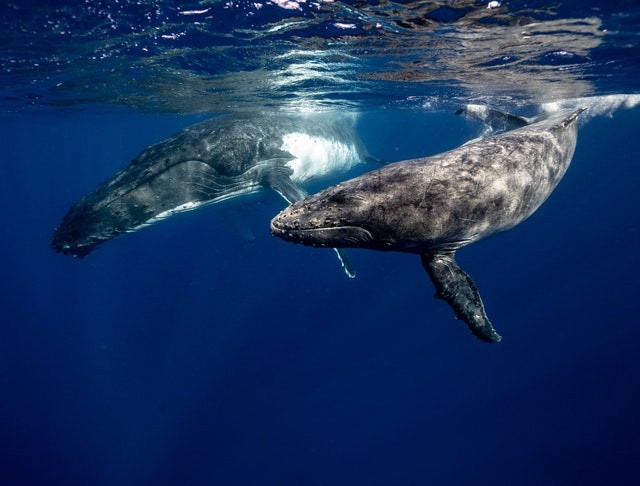To safeguard the world's largest mammal, scientists and conservation organizations advocate for one of the world's busiest shipping channels to be redirected. Researchers have been piecing together information about a little-known, vulnerable group of blue whales that lives off the southern coast of Sri Lanka since 2008.
What they've found so far points to a specific group of cetaceans, if not a subspecies. Rather than traveling immense distances, as other blue whales do, the Sri Lankan species should stay in the area all year, feeding on microscopic shrimp and communicating through different vocalizations.
The magnitude of the peril they confront has also become apparent. The whales' habitat crosses a major shipping route that connects East Asia to the Suez Canal, putting them at risk of ship collisions and noise pollution.
On a typical day, the whales are bombarded by roughly 200 ships, many of which are cargo ships or oil tankers with lengths of up to 300 meters.
"The issue for these whales is that they live in a gigantic obstacle course that people have constructed," said Asha de Vos, a marine scientist who spearheaded the region's first long-term whale research in 2008.
Related Article : As Demand Decreases, Iceland will Finally End Commercial Whaling in 2024
Shipping Traffic

It's a global conflict that's becoming increasingly heated. Shipping traffic increased by 300 percent between 1992 and 2013, with marine transport accounting for about 90% of international trade.
After a study revealed that a modest alteration in the shipping route may significantly impact the whales, a drive is currently underway in Sri Lanka to address what De Vos characterizes as a "uniquely resolvable issue."
A trio of international conservation groups has publicly called on the Sri Lankan government to submit the route modification to the International Maritime Organization, supported by her long-standing drive to shift the shipping channel.
"Studies show that establishing a shipping lane 15 nautical miles south of the existing lane would reduce the danger of accidents with blue whales by 95%," the letter from the International Fund for Animal Welfare (IFAW), Great Whale Conservancy, and OceanCare stated.
The 15-nautical-mile movement was "insignificant" for ships traveling across the world, according to IFAW's Sharon Livermore. This minor alteration in the shipping lane's location would have a big impact on the conservation status of these whales.
While there are no exact figures on how many whales dwell in the region or how many have been killed by ships, numerous bodies have been discovered in recent years that show the collision.
Rerouting

The rerouting would also aid the country's burgeoning whale-watching sector and small-scale fishing villages, whose boats have been seen bobbing dangerously near to massive ships in the shipping lane.
Her organization addressed the Sri Lankan government in 2015 about shifting the shipping path, describing it as a once-in-a-lifetime chance to conserve blue whales, 90 percent of whom were murdered by whalers throughout the twentieth century.
For more animal, don't forget to follow Nature World News!
© 2025 NatureWorldNews.com All rights reserved. Do not reproduce without permission.





